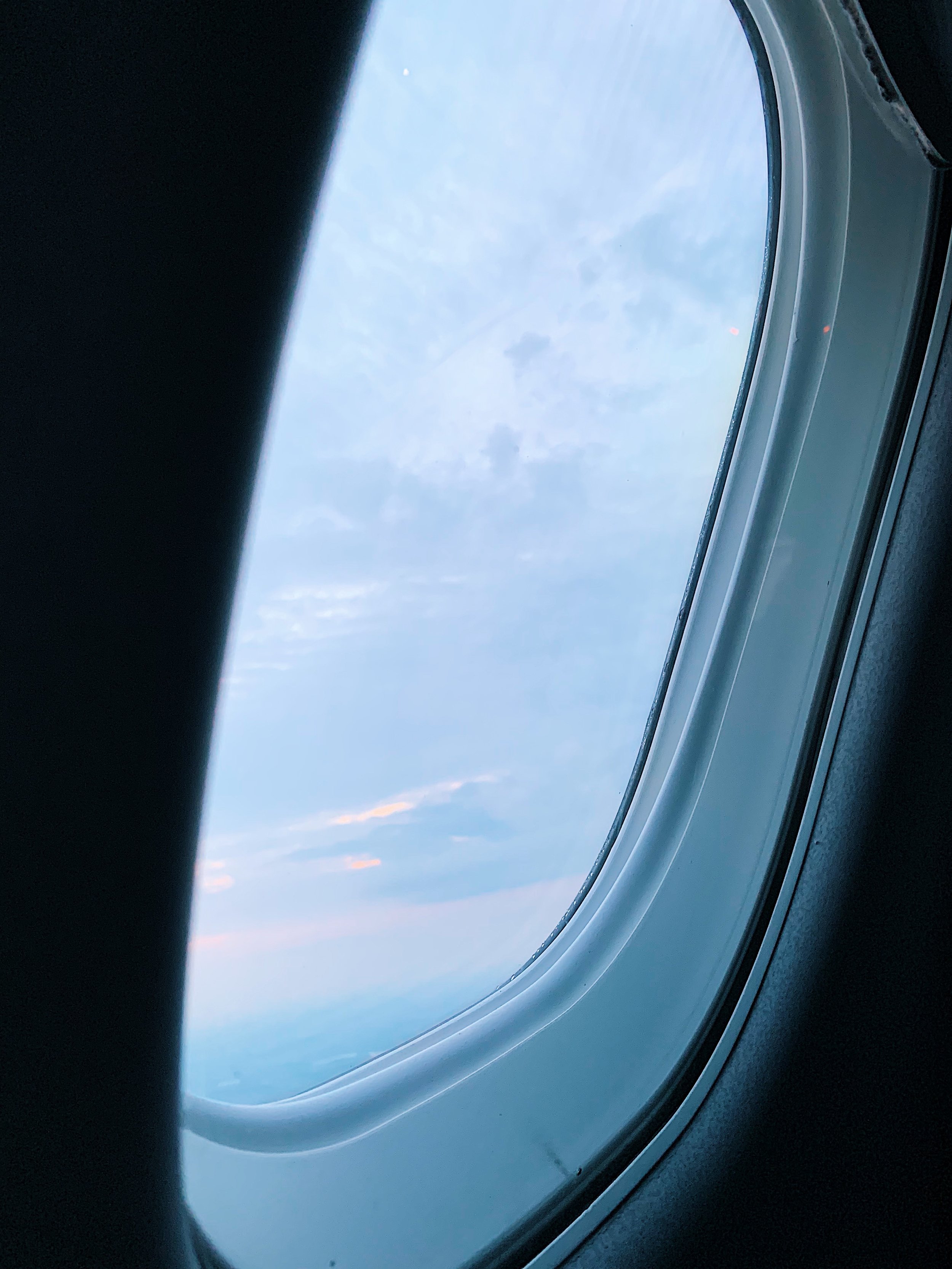Managing Reverse Culture Shock
Most frequent travellers are familiar with the term “culture shock.” But people are often caught off guard by the reality of “reverse culture shock.” Reverse culture shock is the discomfort you feel when you return to your own culture after being removed from it for a significant amount of time. I clearly remember experiencing this discomfort in elementary school when my family moved between Singapore and East Grand Rapids, Michigan. At this age, however, I wasn’t able to articulate this discomfort and certainly was not able to label it as reverse culture shock. Now, after 22 years of moving between vastly diverse cultures I am not exempt from culture shock or reverse culture shock, but I am better equipped to manage it.
I’ll use my first major transition from South Africa back to the USA last year to exemplify 5 signs of reverse culture shock and 5 ways to manage it.
5 SIGNS of Reverse Culture Shock
Annoyed by EVERYONE
Most of us can relate to the feeling of being annoyed by everyone around us for no obvious or rational reason other than it’s just one of those days. This feeling of annoyance after returning home from a lengthy stay in another culture is a sure sign of reverse culture shock. This is typically the first reverse-culture-shock symptom that I become aware of because it usually starts before I have even left the airport.
As I travelled back to the USA after 5 months in South Africa, I encountered more and more Americans the closer I got to home. I felt annoyed with how loud they were speaking, how seemingly out of shape so many of them were, and even with how they dressed. Americans were “they” and “them” in my mind and I was somehow above or distinguished from them. This feeling of being “other” from my own culture is at the core of reverse culture shock.
Feeling of Displacement
The feeling of annoyance can quickly transform to alienation or displacement once you encounter family and friends. Everyone will surely be asking you about your travels and adventures and you may feel that no matter what you tell them they will never really understand what you have just been through. This is another extremely common sign of reverse culture shock.
Coming home from South Africa I didn’t necessarily feel disconnected by my parents but certainly felt a level of separation from my friends, even the ones I kept in touch with while I was abroad. I knew they couldn’t understand Cape Town the way I did and that made me feel distant from them.
Glorification of Another Culture
There is a psychological term called rosy retrospection that refers to one’s tendency to remember things more favorably than they actually were. This is a great way to think about this 3rd sign of reverse culture shock: glorification of another culture. Once you return home, you will likely focus on all the positive memories from your time abroad and forget to consider the numerous challenges or frustrations creating a glorified perception of your trip and the culture you experienced.
One of my strategies for avoiding this upon returning home from South Africa was re-reading journal entries from about 6 weeks into my time abroad when I was particularly struggling with the life and culture in South Africa. This kept my perspective in check.
Conversational Disconnect
The feeling of disconnect from your friends and family members that you may experience upon returning home can also influence the conversations you are having, even when they have nothing to do with your travels.
Almost every conversation I had in the couple months following my return from South Africa made me think of South Africa or an experience I had there. I had been living there for 5 months prior so it’s not that surprising. But I of course didn’t want to seem like I was bragging about my travels and I certainly didn’t want to bore friends with anecdotes about people and places they were unfamiliar with. This made holding conversations and remaining engaged in them much more challenging.
Psychological Distress
The combination of the symptoms just described can often take a psychological toll. Reverse culture shock can last anywhere from days to weeks to months. But the longer the feelings of displacement and alienation linger, the more likely it is that you could develop feelings of distress, anxiety, and/or sadness.
Fortunately, having experienced the feelings of displacement in my own culture and friend groups from a young age, I have developed strategies for managing and battling it.
5 Ways to MANAGE Reverse Culture Shock
Journal
Journaling before, during, and after a trip has numerous benefits. Managing reverse culture shock happens to be one of them. I use a variety of techniques for getting the most insights and benefits from travel journaling and reflection, some of which I’ll be sharing in an upcoming post. But, for managing reverse culture shock specifically, there are just 2 simple things to keep in mind.
First, journalling can take many forms from writing in a physical book to keeping lists in the “Notes” section on your phone. The important thing is recording your thoughts or day-to-day activities in some way while you are on the trip.
Second, don’t hesitate to note the inevitable challenges that accompany immersion into a new culture. A combination of both positive and negative experiences, observations, emotions, etc will not only provide future-you with the most authentic picture of your trip but it will help you avoid glorifying those memories when you return home.
Talk to your friends (Even when it’s uncomfortable)
If you are feeling distance between you and your friends when you are reunited, don’t let the discomfort scare you off. In fact, you can treat dialoguing with friends almost like another cultural experience. You have to re-immerse yourself into your home culture just as you immersed yourself into a new culture at the start of your trip.
Don’t be afraid to voice how your feeling to close friends because dialoguing emotions can break some of that distance down.
Treat your home like a destination
I mentioned above that one way to get past distance between you and your friends is to treat it like another cultural immersion. You can also do this with a physical place. Treat your hometown like a new destination. Visit your favorite go-to spots and maybe even some places you have never been before. A fresh perspective on a place that was previously so familiar to you can always be healthy but it is especially useful in managing reverse culture shock.
Remember what you missed
When you leave home for an extended period of time, you miss things you never thought you would miss. When I was on my way to Cape Town I knew I would miss my regular visits to Starbucks but I didn’t think I would miss Goldfish or boxed mac and cheese or Target. I kept a list in my journal of all the things I missed from reliable Wifi to long showers to Chipotle. I embraced the things I had missed when I got back to the USA and 6 months later when I returned to South Africa I embraced all the things I missed from there too!
Be patient
Transitioning between cultures isn’t an easy thing. We grow up with the mindset, customs, and values of a particular culture and that’s not something you can just change or switch off. So, at a certain point, give yourself a break and know that the discomfort you are feeling after your trip is completely normal and it will fade in time.
Reverse culture shock can be an inevitable side effect of long-term travel even for the more experienced travellers. One thing that can help lessen it, however, is being diligent about reflecting and processing your emotions and perspectives before, during, and after a trip. One of my upcoming posts is a guide for travel journaling so look for that in the coming weeks for even more tips on lessening the stress of reverse culture shock as well as culture shock.






